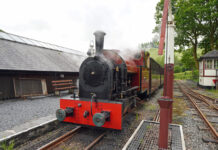Planning for the care of our ageing family members is a process that many of us are going to have to go through in our lives. With the world of elder care filled with horror stories, stereotypes and down right blatant lies about the true reality of how these organisations are run, it can be hard to separate fact from fiction.Today, the vast majority of these organisations are safe, well equipped and ready to provide care for a variety of patients. For this reason, when looking for a dementia care facility, what are some of the things that you should pay attention to?
Lisa Skinner, behavioural expert in the field of Alzheimer’s disease and related dementias, has helped numerous families navigate the challenges of having a loved one diagnosed with Alzheimer’s disease or other dementias over her 20-year career as a community counsellor and regional director of senior care facilities.
“Caring for someone with dementia is a very difficult and challenging task. Caregiver burnout is rampant due to the huge demands that are required for someone who needs help with some or all activities of daily living, especially when they need support 24/7. Some of the benefits of a good dementia-care facility include, round-the-clock care and support. Communities offer loved ones assistance and security throughout the day and night, with trained caregivers and nurses on hand who receive specialised training for people with dementia, and who understand the challenges and unique ways it presents itself in every person. Residing in a specialised community gives residents access to care plans and resources that can be designed to fit their individual needs. Because caregivers get to know the residents well, they can personalise care techniques to enhance the quality of their daily lives. They have access to diet and wellness programs, doctors and medical supervision, socialisation, activities, and a structured program. They are also provided with a safe and secure environment. These are all extremely important components to providing a quality and enriched life for those with dementia,” says Lisa Skinner.
Here are Lisa’s top 4 tips for finding a dementia care facility that best suits you and your loved one’s situation.
Tip #1: Ask, ask, ask
Ask great questions such as how do they assess the care plan for the individual and how often can it be revised. How is the care charged out? Asking questions and getting answers you are comfortable with is important for anyone entrusting the care of a loved one to someone else, so ask, ask, and ask more questions until you are completely satisfied.
Tip #2: Staff competency
Have the facility describe in detail the training that the staff receives to care for people with dementia and what the ongoing training looks like. It’s important to be specific on this and ensure the staff is well prepared to care for your loved one.
Tip #3: What would you do if?
Ask situational questions, like, how would a caregiver respond to behaviors that are common with dementia, like false beliefs, paranoia, hallucinations, outbursts of anger, etc. Make sure you are comfortable with their answers so you will feel comfortable with your loved one living there.
Tip #4: Engaging activities
Ask to see a couple months of their activities calendar. Make sure they provide a structured program and activities that offer enriching and fulfilling activities to help maintain their overall health and wellness. Look for a variety of activities that will stimulate all the 5 senses.
Lisa goes on to say, “There are assisted living facilities that offer help with activities of daily living for people in the beginning stages of cognitive decline, or mild cognitive impairment. Most of them offer a separate memory care option when the person’s cognitive health declines to the point where they need supervision and increased care. There are also stand-alone memory care options that exclusively care for those with dementia. There are also what’s called board and care homes that take care of people with dementia. These are typically private homes that care for up to six residents at a time and the staff is much smaller. Additionally, there are Long-Term Care Facilities or Nursing Homes that care for people with advanced stage dementia. The nursing homes are considered medical models with doctors and nurses on staff and the assisted living facilities/memory care facilities are considered to be social models. They don’t typically have doctors on staff, but do have nurses and certified nursing assistants to care for the residents. The care provided ranges from the residents being very independent who want the prepared meals and socialization aspect of the community living, to those who need help with most or all activities of daily living to end of life hospice care.”
Help keep news FREE for our readers
Supporting your local community newspaper/online news outlet is crucial now more than ever. If you believe in independent journalism, then consider making a valuable contribution by making a one-time or monthly donation. We operate in rural areas where providing unbiased news can be challenging. Read More About Supporting The West Wales Chronicle


























